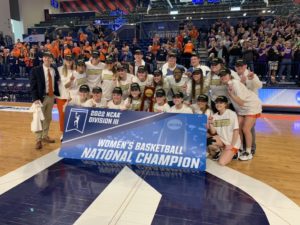Yale follows Dartmouth’s lead, reinstates admissions policy requiring standardized test scores
Yale will once again require applicants to submit standardized test scores for admissions, becoming the second Ivy League school to reverse its test-optional policy after Dartmouth.
In an…

Yale will once again require applicants to submit standardized test scores for admissions, becoming the second Ivy League school to reverse its test-optional policy after Dartmouth.
In an announcement Thursday, the school said the new policy will start with “first-year applicants for fall 2025 admission.” As part of the updated policy, students are allowed the option to submit Advanced Placement (AP) and International Baccalaureate (IB) scores in place of the SAT and ACT.
Yale’s policy reversal comes in light of “four years of research and reflections.” The university found that not requiring standardized tests actually disadvantaged lower-income and first-generation students and increased student diversity.
“We found that by inviting students to apply without any scores, some applicants unwittingly hurt their chances of admission by withholding scores that would have been useful to the admissions committee, even though they were below the median range of our enrolling students,” said Jeremiah Quinlan, dean of undergraduate admissions and financial aid for Yale.
The university claims to have a “whole-person review process” where applicants are considered using a variety of factors, such as standardized test results, school transcripts, teacher recommendations, community service, and extracurricular activities.
During the four years of its test-optional policy, however, Yale had to place greater weight upon other aspects of student applications, which often put students from low-income backgrounds at a disadvantage.
“For students attending well-resourced high schools, substitutes for standardized tests are relatively easy to find: transcripts brim with advanced courses, teachers are accustomed to praising students’ unique classroom contributions, and activities lists are full of enrichment opportunities,” explained Quinlan.
“For students attending high schools with fewer resources, applications without scores can inadvertently leave admissions officers with scant evidence of their readiness for Yale.”
While the university acknowledged that standardized tests such as the SAT and the ACT were “imperfect and incomplete” on their own, they found test results to be “the single greatest predictor of a student’s future Yale grades.”
An analysis of students admitted without test scores revealed they did “relatively well” in their coursework, but there was “a statistically significant difference in average GPA between those who applied with and without test scores,” said Quinlan.
Bringing back test scores “provide[s] one consistent and reliable bit of data among the countless other indicators, factors, and contextual considerations we incorporate into our thoughtful whole-person review process,” the university concluded.
Dartmouth University, which reverses its test-only policy Feb. 5, reached a similar conclusion.
Among the Ivy League schools, Harvard, Cornell, the University of Pennsylvania, Princeton and Brown University continue to remain test-optional, while Columbia University has made its test-optional policy permanent.



